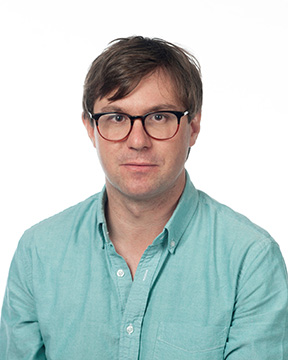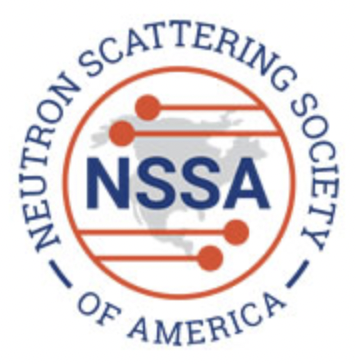This press release is shared jointly with the Neutron Scattering Society of America newsroom.
Martin Mourigal, an associate professor in the School of Physics, is the recipient of the 2022 Science Prize of the Neutron Scattering Society of America (NSSA) with the citation: "For significant and insightful use of neutron inelastic scattering in the study of quantum materials."
The Neutron Scattering Society of America (NSSA) established the Science Prize to recognize a major scientific accomplishment or important scientific contribution within the last five years using neutron scattering techniques. Nominees must be within 12 years of receiving their PhD. Preference shall be given to applicants whose work was carried out predominantly in North America.
The prize and honorarium will be awarded at the 2022 American Conference on Neutron Scattering in Boulder, CO, June 5-9.
Mourigal's research journey
Mourigal is widely known for his research on novel magnetic quantum materials. He uses neutron scattering to characterize the magnetic fluctuations and the short- and long-range magnetic order in these materials to gain insight into the underlying quantum behavior. His recent work has revived worldwide interest in the physics of the triangular lattice antiferromagnet.
In 2016, he and his team published a detailed neutron scattering investigation of YbMgGaO4 that identified the crucial role chemical disorder plays in defining the excitations on the triangular lattice. This model system was proposed theoretically by Phil Anderson in 1972 to exhibit a quantum spin liquid (QSL) ground state.
Despite extensive experimental and theoretical work since this time, it wasn’t until Mourigal’s recent investigations that we now have appropriate boundary conditions for the triangular lattice to determine which real materials can be considered as physical manifestations of the exotic QSL state, and to what extent disorder serves to mask quantum behavior.
Mourigal’s work has made it clear that while a continuum of magnetic excitations is characteristic of a QSL ground state, this property alone is not sufficient to prove the existence of such a state. The use of quantum materials for applications in quantum information science requires increased understanding of entangled states, and how they behave in real materials. As part of this endeavor, Mourigal and his students have focused on examining the spin dynamics of spin-1 SU(3) magnets with proposed Kitaev-like interactions. This resulted in a recent project that pushed the boundaries of both neutron scattering measurement and theoretical modeling to understand the influence of spin-orbital physics in the triangular magnet FeI2.
Mourigal and his collaborators also observed a set of quadrupolar spin excitations that ordinarily should not be observable using neutron scattering techniques. They were able to explain that these excitations were visible due to the coupling of the spin and orbital degrees of freedom. This discovery of hybridization between dipolar and quadrupolar modes has solved a 40-year-old mystery about why these excitations exist in this compound. This work will remain a longstanding contribution in the fields of neutron scattering and quantum materials due to its high-quality data, as well as the high level of sophistication used to theoretically model the results.
The NSSA will present the Science Prize to Mourigal during the ACNS' Plenary and Prize Session at the University of Colorado Boulder, at 8:30 a.m. Tuesday, June 7, in UMC Conference Room 235. Mourigal will also give a presentation, "Magnons Are Not Forever."
For More Information Contact
Renay San Miguel
Communications Officer II/Science Writer
College of Sciences
404-894-5209




